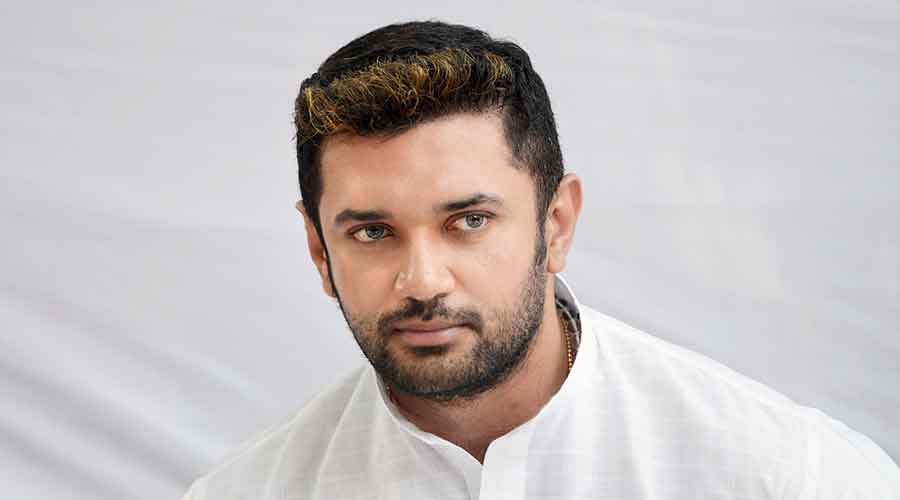The Lok Janshakti Party witnessed a coup on Monday when five of its six MPs revolted against party chief Chirag Paswan and elected his uncle Pashupati Kumar Paras as the parliamentary party leader.
The sudden implosion of the party formed by veteran Ram Vilas Paswan, who passed away last year, bore signs of Bihar chief minister Nitish Kumar’s cold revenge, months after Chirag led an aggressive campaign against Nitish and his Janata Dal United in the Assembly polls and spoilt its show.
Five of the six LJP MPs (Chirag is the sixth) met at Hajipur Lok Sabha member Paras’s residence on Sunday, elected him leader of the parliamentary party and then went to meet Lok Sabha Speaker Om Birla to submit a letter and inform him about the decision.
Chirag woke up to the coup on Monday morning and rushed to his uncle’s residence for rapprochement but had to return empty-handed. The LJP chief had to wait for nearly 30 minutes outside his uncle’s residence before he was let in and but Paras was not present in the house.
The breakaway group of five MPs, led by Paras, reposed faith in the leadership of Nitish in Bihar and said they were part of the NDA, both at the national and state level, lending credence to the JDU’s role in the operation.
“I have not split the party but saved it according the desire of five of our six MPs,” Paras told reporters, terming Nitish a “vikas purush (development man)”, stressing party workers were opposed to Chirag’s decision of contesting against the JDU.
Taking control of the party after his father’s death, just ahead of the Bihar polls in October-November last year, Chirag had broken out of the NDA and unleashed a scathing campaign against Nitish. The JDU believes its seat tally dropped sharply because the LJP candidates played spoilsport.
The LJP too had performed poorly, winning just one Assembly seat and the MLA has now defected to the JDU.
Big brother BJP, which was believed to have indirectly backed Chirag’s oust-Nitish campaign, maintained silence over the sudden developments. Chirag had fielded candidates mostly against the JDU, while declaring his admiration for Prime Minister Narendra Modi.
The timing of the revolt was linked with the speculations of a cabinet expansion in Delhi. By asserting that he was part of the BJP-led NDA at the Centre and the Nitish-led alliance in Bihar, Chirag’s uncle appeared to be eyeing a berth in the Modi government.
Paswan was a key minister in the Modi government as an ally. His son Chirag was hoping to get a place but internally, his claim was opposed firmly by the JDU, arguing that he had broken out of the NDA.
The JDU’s opposition had also forced the BJP to cancel an invite to Chirag to attend a virtual NDA meeting in January this year.
While BJP leaders claimed they had no role in the current development, LJP leaders close to Chirag felt the Lok Sabha Speaker agreeing to meet the rebel group so easily couldn’t have happened without a nod from the ruling party.
“While we have no role in whatever is happening in the LJP but at the same time we have nothing to worry because the rebel group has said they will be part of the NDA,” one BJP leader said.
This leader also slammed Chirag saying: “The young leader had gone too far.”
BJP leaders handling the Bihar affairs of the party said they can’t annoy the JDU, since the party with 16 MPs, is currently the second largest constituent of the ruling NDA at the Centre after the departure of the Shiv Sena with 18 MPs.
“Allies like Shiv Sena and Akali Dal have quit the NDA and so we need the JDU to send a good message,” one Bihar BJP leader said.
Sensing the current perception, particularly after the BJP’s drubbing in Bengal and the upcoming Uttar Pradesh polls, the JDU has started building pressure by demanding a “respectable share” in the Modi government.
Nitish’s party had refused to join the Modi government after it was offered only a token representation. The JDU could now also press for inclusion of the LJP faction led by Paras, to increase its heft.











